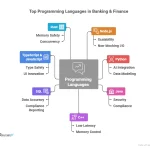
The study of finance covers many different areas and branches, such as corporate finance, asset valuation, and personal finance. All of these topics are related to raising capital and managing money, as well as investing, saving, and debt. In addition, there are also new branches, such as Neurofinance, which studies how people make decisions related to money and the economy.
These branches all apply mathematical methods to the study of financial markets. Financial mathematics, for example, uses advanced statistical and mathematical techniques to study financial markets. The aim is to estimate the “fair” price of a given security in terms of more liquid securities. This “fair” price can be defined by the fact that it is suitable for both buying and selling a security. Examples of securities that are priced in this way include plain vanilla options, convertible bonds, and exotic options.
Personal finance focuses on individual and household income and expenditure. It also includes loans, debts, and loan obligations. Public finance focuses on public and collective activities. Business finance, on the other hand, deals with managing money in businesses. It involves balancing risk and profitability in order to maximize profits and stock value.
Besides banks and financial institutions, there are many other fields where a bachelor’s degree in finance can be used. For example, a financial analyst can work in the public or private sector. There are numerous non-profits and cities that need such analysts. These professionals can be in the banking sector or focus on social issues, such as crime, or may even work in law enforcement.
Profit management is closely related to business, and learning about economic trends can help to achieve quick business growth. It is considered by some experts as one of the secrets of success in business. In addition, it is the dream of every business owner to maximize stock values. Moreover, the study of finance in these fields can make you a better decision maker.
As the field of finance grows, opportunities in many new areas are opening up. Most entry level positions require a bachelor’s degree and some work experience. Internships are often available in this field, so you can gain experience while you’re in college. Some common titles include accountant, financial analyst, and banker. Despite the increasing demand, finance remains one of the most competitive careers.
Economics and finance are two fields that overlap and complement each other, but they differ greatly in their careers. An economics degree will lead to more specific careers, while a finance degree opens the door to a broader range of options. Depending on your goals, both fields can be a great fit. If you like working with money and studying global markets, a degree in economics might be a good choice.
A career in finance can be exciting and rewarding. The pay is usually higher than in other fields. Many people like to crunch numbers and analyze data. This job requires strong communication skills and the ability to influence decision-makers. Large pools of complex information are a challenge for finance professionals, and their forecasts are often crucial to the success of a business.





